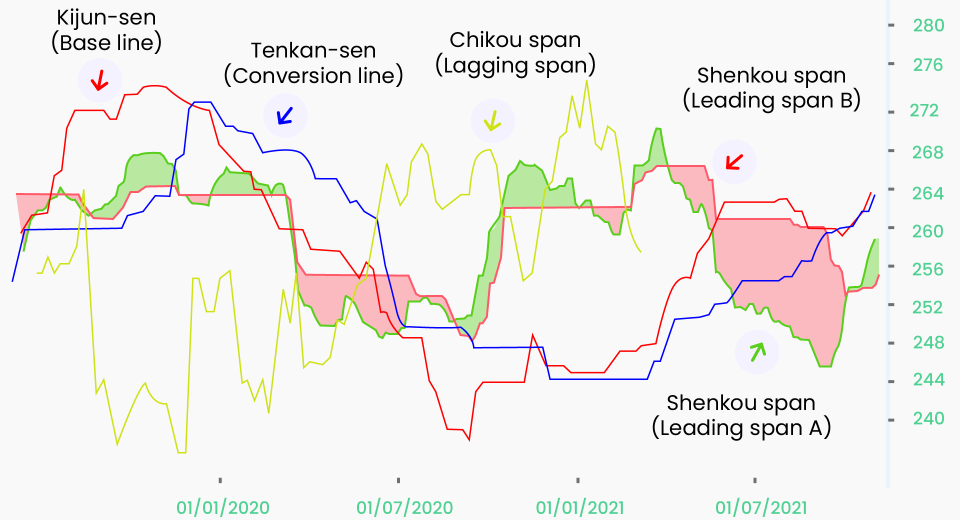Forex is one of the most volatile markets, but also the one with the most liquidity, which offers opportunities for traders 24/5 globally to take advantage of. Forex scalping is one the most popular techniques for capitalising on the tiniest changes in currency valuations.
Scalping is like a rapid-fire adventure where traders open and close multiple positions within a short timeframe. Usually, each position lasts anywhere from a few seconds to a few minutes. The goal is to accumulate small profits over time through a huge number of trading positions (which may even go up to a few hundred) to book more gains than losses at the end of the day.
Forex scalping is popular in the intraday trading community because larger moves are rare, while smaller ones are frequent even on a single trading day. This holds true even for relatively calm markets.
1. How Do Scalpers Think?
Scalpers need to be very disciplined. They adhere to their carefully developed and tested trading plan. They set daily trading durations and loss limits to ensure necessary breaks.
Scalpers often enter the markets with a “me versus them” mindset. Their goal is to identify and take advantage of repetitive market patterns that others may not notice or observe only after it is too late. Scalpers are extremely focused and remain glued to charts.
Scalpers are swift decision-makers. They must rapidly make decisions to enter and exit trades. Plus, they must be agile in recognising mistakes and acting accordingly. They cannot dwell on missed or misunderstood opportunities for too long.
Scalpers have a calm trading psyche. They navigate all market conditions without panicking, even during chaotic times.
Scalpers never carry over their positions to the next trading session or hold positions overnight. They close all trades on the same day.
2. How Do Scalpers Conduct Technical Analysis?
Strong technical analysis is indispensable for a forex scalper. They trade based on historical movements and signals that help them speculate on future movements.
Chart Duration
Scalpers use 5-minute to 30-minute historical charts to gauge the next pip move of a currency pair. Experts may trade using tick charts or 1-minute charts. With advanced technologies and algorithmic trading, trading can be automated to ensure high-speed entry and exit.
Capturing Event Triggered Volatility
The forex market is volatile around economic data releases or calendar events. This volatility lasts from a few minutes to only a few hours and scalpers attempt to capture high-velocity moves multiple times, if possible.
3. When is the Best Time To Scalp in Forex?
The forex market sees the highest liquidity when trading sessions of major forex hubs overlap:
- New York and London sessions overlap from 1:00 pm to 4:00 pm (UTC)
- Tokyo and Sydney sessions overlap from 12:00 am to 6:00 am (UTC)
- Tokyo and London sessions overlap from 7:00 am to 9:00 am (UTC)
4. How Do Scalpers Choose a Broker?
The trading experience of a scalper depends on the broker they choose. Picking a regulated broker who addresses their trading needs is paramount. They check the brokerage’s operation mechanism and:
Terms and Conditions
Traders must carefully read and understand the trading agreement. Read between the lines and the small print. Pay attention to margin requirements and leverage. Understand the mechanism of automatic liquidation and situations that may trigger it. Also, learn about negative balance protection and withdrawal facilities.
Trading Environment
Assess the liquidity sources, reliability and credibility of the brokerage. Slippage and spread can be lethal for scalpers since they have slim profit margins. Therefore, ultra-fast trade execution and tight spreads are preferred.
Use a demo account to grow accustomed to the trading platform and its features to decide whether it suits your scalping requirements. Ensure that you can enter and exit positions in more than one way.
5. How Do Traders Decide Whether They Can be Forex Scalpers?
Although the best way is to try your hands at it, here’s a self-checklist to get you started:
Scalping could be for you if:
- You like the excitement of fast trading and the adrenaline rush it brings.
- You can remain focused on charts and notice the slightest movements.
- You don’t like long waiting times or swing trading.
- You think fast, without bias, and act quickly.
Scalping might not be the best strategy if:
- You prefer taking time to analyse charts and make decisions.
- You cannot commit to long durations of constant vigilance to charts.
- You prefer fewer and longer trades.
6. Which Strategies Do Forex Scalpers Rely On?
Forex scalping depends on a trader’s trading goals and risk appetite, and their developing trading plan considers these factors. Traders use the 5-3-1 rule to build their trading strategy. A few popularly used ones are:
Breakout Trading
Forex scalpers identify small ranges and trade breakouts from that range. Bollinger Bands and Fibonacci Levels are commonly used to identify support and resistance levels.
Spread Trading
Spread traders buy and sell a currency pair from different providers at the same time. This is also called arbitrage trading. Their goal is to take advantage of the price difference. This is one of the most challenging forms of scalping. Here, traders aim to “cross the spread.”
Momentum Trading
Traders capture small price action within a wider range of price movements. Popular indicators for momentum-based scalping are EMA and Parabolic SAR.
High Volume Trading
This strategy involves capitalising on the smallest pip changes by opening and closing multiple positions at a high frequency. High-volume trades are often carried out using EAs and automated trade setups.
Scalping can be fun and challenging but also mentally exhausting. Remember to take breaks and use appropriate risk management measures. Journaling your daily performance can help you refine your strategy for diverse market conditions.
Summing Up
- Scalpers are quick, calm and disciplined decision makers.
- Scalpers use technical analysis charts to capture short-term volatility.
- Scalpers check brokers’ terms and conditions, and trading conditions carefully before choosing.
- Assess your trading style and personality before deciding to join forex scalping.
- The most popular forex scalping strategies include breakout, spread, momentum and high-volume trading.
Disclaimer:
All data, information and materials are published and provided “as is” solely for informational purposes only, and is not intended nor should be considered, in any way, as investment advice, recommendations, and/or suggestions for performing any actions with financial instruments. The information and opinions presented do not take into account any particular individual’s investment objectives, financial situation or needs, and hence does not constitute as an advice or a recommendation with respect to any investment product. All investors should seek advice from certified financial advisors based on their unique situation before making any investment decisions in accordance to their personal risk appetite. Blackwell Global endeavours to ensure that the information provided is complete and correct, but make no representation as to the actuality, accuracy or completeness of the information. Information, data and opinions may change without notice and Blackwell Global is not obliged to update on the changes. The opinions and views expressed are solely those of the authors and analysts and do not necessarily represent that of Blackwell Global or its management, shareholders, and affiliates. Any projections or views of the market provided may not prove to be accurate. Past performance is not necessarily an indicative of future performance. Blackwell Global assumes no liability for any loss arising directly or indirectly from use of or reliance on such information herein contained. Reproduction of this information, in whole or in part, is not permitted.





